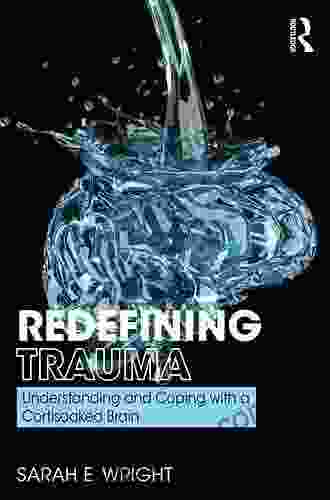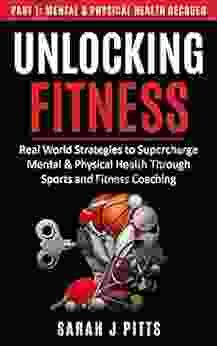Understanding and Coping with Cortisoaked Brain: A Comprehensive Guide to Reversing the Effects of Chronic Stress

In today's fast-paced and demanding world, chronic stress has become an epidemic. This relentless exposure to stress can have a profound impact on our physical and mental health, leading to a variety of debilitating symptoms. One of the most insidious effects of chronic stress is its ability to alter the structure and function of our brains. This phenomenon, known as the "cortisoaked brain," is characterized by an overabundance of the stress hormone cortisol, which can damage neurons, impair cognitive function, and contribute to a wide range of health problems.
To effectively cope with the effects of chronic stress, it is essential to understand the neurobiological mechanisms underlying the cortisoaked brain. Cortisol, the primary stress hormone, is released by the adrenal glands in response to stressors. While short-term exposure to cortisol can be beneficial, helping us to adapt to challenges and cope with emergencies, prolonged exposure to cortisol can have devastating consequences.
Excessive cortisol levels can lead to:
5 out of 5
| Language | : | English |
| File size | : | 2276 KB |
| Text-to-Speech | : | Enabled |
| Screen Reader | : | Supported |
| Enhanced typesetting | : | Enabled |
| Word Wise | : | Enabled |
| Print length | : | 242 pages |
- Neuronal damage: Cortisol can damage neurons in the hippocampus, a brain region essential for memory and learning. This damage can lead to cognitive impairment, memory loss, and difficulty concentrating.
- Impaired neurogenesis: Cortisol can also inhibit neurogenesis, the process by which new neurons are generated. This reduction in neurogenesis can contribute to cognitive decline and mood disFree Downloads.
- Disrupted brain circuits: Chronic stress can disrupt the connections between neurons, impairing communication within the brain. This disruption can lead to problems with attention, decision-making, and emotional regulation.
The symptoms of the cortisoaked brain can vary depending on the individual, but some common signs include:
- Cognitive impairment: Difficulty concentrating, memory loss, confusion, and problems with decision-making.
- Mood disFree Downloads: Anxiety, depression, irritability, and mood swings.
- Sleep disturbances: Insomnia, early morning awakening, and difficulty falling asleep.
- Physical health problems: Headaches, stomach problems, weight gain, and increased risk of chronic diseases such as heart disease and diabetes.
While chronic stress can have a significant impact on our health and well-being, there are effective strategies we can employ to cope with its effects and reverse the damage caused by the cortisoaked brain.
1. Stress Management Techniques:
- Mindfulness: Practices such as meditation, yoga, and deep breathing can help to calm the mind and reduce stress levels.
- Exercise: Regular exercise is a powerful stress reducer and can help to improve mood and cognitive function.
- Sleep: Getting adequate sleep is essential for stress recovery. Aim for 7-9 hours of sleep per night.
2. Lifestyle Modifications:
- Diet: A healthy diet rich in fruits, vegetables, and whole grains can support brain health and reduce stress.
- Social support: Connecting with loved ones, friends, and support groups can provide emotional support and reduce feelings of isolation.
- Purposeful activities: Engaging in activities that bring joy and fulfillment can help to reduce stress and improve overall well-being.
3. Professional Help:
- Therapy: Cognitive behavioral therapy (CBT) and other forms of therapy can help to identify and change unhealthy thought patterns and behaviors that contribute to stress.
- Medication: In some cases, medication may be necessary to manage symptoms of anxiety or depression related to chronic stress.
Chronic stress is a serious problem that can have a profound impact on our physical and mental health. By understanding the neurobiological effects of chronic stress on the brain, we can develop effective strategies to cope with its effects and reverse the damage caused by the cortisoaked brain. Through stress management techniques, lifestyle modifications, and professional help, we can regain control of our stress response and improve our overall well-being.
5 out of 5
| Language | : | English |
| File size | : | 2276 KB |
| Text-to-Speech | : | Enabled |
| Screen Reader | : | Supported |
| Enhanced typesetting | : | Enabled |
| Word Wise | : | Enabled |
| Print length | : | 242 pages |
Do you want to contribute by writing guest posts on this blog?
Please contact us and send us a resume of previous articles that you have written.
 Book
Book Novel
Novel Page
Page Chapter
Chapter Text
Text Story
Story Genre
Genre Reader
Reader Library
Library Paperback
Paperback E-book
E-book Magazine
Magazine Newspaper
Newspaper Paragraph
Paragraph Sentence
Sentence Bookmark
Bookmark Shelf
Shelf Glossary
Glossary Bibliography
Bibliography Foreword
Foreword Preface
Preface Synopsis
Synopsis Annotation
Annotation Footnote
Footnote Manuscript
Manuscript Scroll
Scroll Codex
Codex Tome
Tome Bestseller
Bestseller Classics
Classics Library card
Library card Narrative
Narrative Biography
Biography Autobiography
Autobiography Memoir
Memoir Reference
Reference Encyclopedia
Encyclopedia Tanya Bentham
Tanya Bentham Sarah Ban Breathnach
Sarah Ban Breathnach Scott Grossberg
Scott Grossberg Silk Cotton
Silk Cotton Zainurrahman
Zainurrahman Stephen Kinzer
Stephen Kinzer Tracey Miller Zarneke
Tracey Miller Zarneke Helen Boyd
Helen Boyd Wieland Kraut
Wieland Kraut Sunny Sea Gold
Sunny Sea Gold Chauncey W Crandall
Chauncey W Crandall Trisha Savoia
Trisha Savoia Ryan Becker
Ryan Becker Stamatis Karnouskos
Stamatis Karnouskos William Mckeen
William Mckeen Ashley Brown
Ashley Brown Stephen B Oates
Stephen B Oates Steven E Landsburg
Steven E Landsburg Sverre Holm
Sverre Holm Marie Robinson
Marie Robinson
Light bulbAdvertise smarter! Our strategic ad space ensures maximum exposure. Reserve your spot today!

 Max TurnerUnleash the Magic of "The Golden Gecko" Disney Elena of Avalor Little Golden...
Max TurnerUnleash the Magic of "The Golden Gecko" Disney Elena of Avalor Little Golden...
 Chadwick PowellLessons In Space And Environment: A Comprehensive Guide To The Cosmos And Its...
Chadwick PowellLessons In Space And Environment: A Comprehensive Guide To The Cosmos And Its...
 Alexander BlairTop 13 Fun Halloween Party Recipes And More Spooky Ideas Cook Tonight Holiday
Alexander BlairTop 13 Fun Halloween Party Recipes And More Spooky Ideas Cook Tonight Holiday Esteban CoxFollow ·15.3k
Esteban CoxFollow ·15.3k Dylan HayesFollow ·4k
Dylan HayesFollow ·4k Jack LondonFollow ·11.5k
Jack LondonFollow ·11.5k Kelly BlairFollow ·13.3k
Kelly BlairFollow ·13.3k William PowellFollow ·10.4k
William PowellFollow ·10.4k Gil TurnerFollow ·3k
Gil TurnerFollow ·3k Brent FosterFollow ·15.9k
Brent FosterFollow ·15.9k Roland HayesFollow ·6.1k
Roland HayesFollow ·6.1k

 Timothy Ward
Timothy WardSteamy Reverse Harem with MFM Threesome: Our Fae Queen
By [Author...

 Cody Blair
Cody BlairThe Ultimate Guide to Energetic Materials: Detonation and...
Energetic materials are a fascinating and...

 Kenzaburō Ōe
Kenzaburō ŌeProstitution, Modernity, and the Making of the Cuban...
By Emily A....

 Kirk Hayes
Kirk HayesUnveil the Enchanting World of The Rape of the Lock by...
Alexander Pope's epic...

 Ivan Turgenev
Ivan TurgenevTantric Quest: An Encounter With Absolute Love
Embark on a Tantric Quest to...

 Gary Reed
Gary ReedThe Darwin Awards: Evolution in Action
The Darwin Awards are a...
5 out of 5
| Language | : | English |
| File size | : | 2276 KB |
| Text-to-Speech | : | Enabled |
| Screen Reader | : | Supported |
| Enhanced typesetting | : | Enabled |
| Word Wise | : | Enabled |
| Print length | : | 242 pages |






